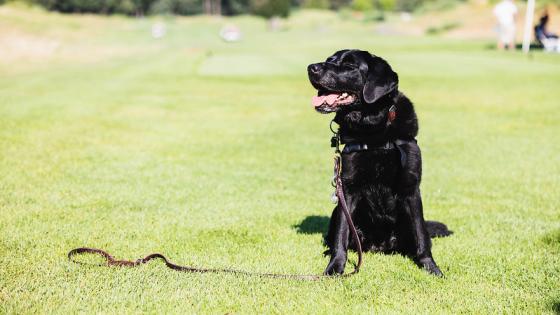
Be Ready, Not Rushed: Emergency Planning for Pet Owners
Oregon’s wildfire season, heatwaves, and seismic risks are on the rise—and so is the need for pet owners to be prepared. In an emergency, you have to act fast. Without a plan in place, our beloved pets can be especially vulnerable.
That’s why June is recognized as Pet Preparedness Month, and we are urging families to take action now to protect their pets in the face of disaster.
“It’s about being ready before a disaster strikes,” said Dr. Sarah Tauber, an emergency veterinarian at DoveLewis. “A little planning can save your pet’s life—and your peace of mind—when every second counts.”
Top Tips for Pet Emergency Preparedness
- Build a Go-Bag: Prepare a dedicated emergency kit for your pet. Include a pet first aid kit, food, water, medications, vet records, a leash or carrier, and comfort items like a favorite toy or blanket. Store it somewhere you can grab quickly.
- Create a Pet Evacuation Plan: Know in advance how and where you’ll evacuate with your pets. Identify multiple pet-friendly shelters, hotels, or friends and family who can help in a pinch. Practice loading up your pets in their carriers and in the car, so the real thing feels less chaotic.
- Update Microchip and ID Tags: Ensure your pet is microchipped and wearing a collar with up-to-date ID tags. This is the fastest way to be reunited if you get separated in an emergency. Make sure your microchip information includes your current phone number and address.
- Not sure if the microchip info is current? Ask your vet to scan the chip and help identify the registry. Then visit the registry’s website to update your contact details. You can also look it up using the chip number at www.petmicrochiplookup.org.
- Pre-Register Your Pet at DoveLewis: If you need emergency care during a crisis, time is critical. Pre-registering your pet at DoveLewis can help reduce check-in delays during high-stress moments.
- Plan for Every Pet in Your Household: Each pet has unique needs. Small mammals, birds, reptiles, and exotic pets may need special carriers, climate controls, or dietary considerations.
To help educate pet owners, we are expanding our efforts to help the community prepare. We now offer monthly public workshops and training sessions in our 100-person community room, welcoming families, first responders, and law enforcement to learn how to keep pets safe during fires, earthquakes, and extreme heat events.
“Preparedness is your pet’s lifeline,” said Dr. Tauber. “We want every pet owner to feel empowered and ready, not scared and scrambling when a disaster hits.”
Recent Posts
Everything You Need to Know About Heatstroke in Cats & Dogs
Summer is a season of fun and adventure, but it also brings along scorching temperatures that can pose serious risks to our pets. By being vigilant and knowledgeable, you can make a significant difference in your pet's health and potentially save their life.
Water Safety for Pets: What Every Pet Parent Needs to Know
Whether it's a day at the beach, a poolside party, or a lakeside adventure, water activities can be fun to enjoy with your pet on a sunny day! Before you dive headfirst, it’s important to know some essential pet water safety to ensure a fun and worry-free time for everyone involved.



